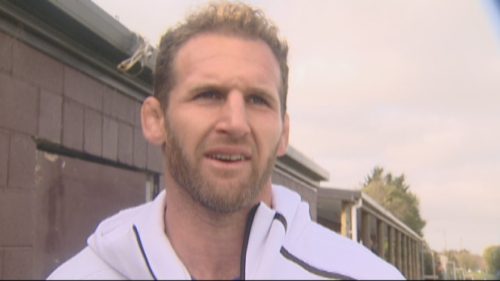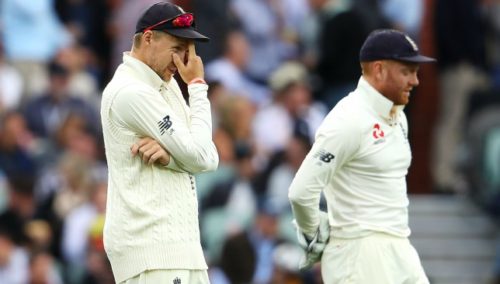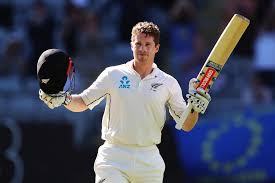
New Zealand and the rugby world have been shocked this morning by the announcement that Kieran Read is retiring from rugby union effective immediately, and has set his sights on making the Black Caps squad “within the next 18-24 months”. Read, who has 108 caps for the All Blacks, told the nation this morning that several years of minor knocks to the head have made him decide that enough is enough, and he has been forced to make decisions with his long-term wellbeing in mind.
Read, who played for the Crusaders as well as the All Blacks, is convalescing from back surgery for a slipped disc. Spending this time with his family, including his two young children, gave him an appreciation for the long-term risks of brain damage from repeated blunt force trauma to the head.
“Rugby is a great game and always will be a great game, and I have had a great career,” Read explained to a media scrum outside his home this morning. “But I have also had a very long career, and a career in an age where rugby players are heavier and faster than ever before. I’ve taken a number of blows to the head in my dozen years as a professional rugby player, and the past few weeks have made me realise the importance of being there for my own kids, in the future, in good mental health.”
Reading from a prepared statement, Read mentioned the recent news coming out of the NFL about the long-term effects of repeated head trauma, and how this, along with increased attention being given to the issue by way of Head Injury Assessment protocols, changed his previously casual attitude. Recent research appears to be suggesting that up to 40% of former NFL players suffer from brain damage – and they have helmets. Rugby players don’t tackle with the head, but rugby is still a collision sport.
“Spending time playing with my kids, and feeling headaches like I do, forced me to ask whether it was necessary to risk further brain injury. I have given my all for the All Blacks and for the various teams I have been involved with, and on balance have decided that it’s time to put my family and my head first.”
Speaking exclusively to VJM Publishing’s Dan McGlashan, Read says that he’s put out the feelers to New Zealand Cricket but isn’t expecting miracles. “I’ve spoken to Hess [Black Caps coach Mike Hesson] and he’s made clear to me that there are no guarantees about selection. I’ll be judged on my merits, primarily as a batsman and initially for my Papakura club side, and we’ll take it from there. No guarantee about any ‘X-Factor’ weighing in my favour like Jeff Wilson got.”
Read was a useful cricketer in his high school days, going as far as representing New Zealand in Under-17 cricket, but felt forced to make the decision to focus solely on rugby as a demanding professional career loomed. In an age of cricket where the importance of defence is minimised in favour of massive hits, the 6’4″, 111kg Read stands in the same category as Chris Gayle and Kevin Pietersen as a man who can swing the willow extremely hard.
It’s not yet known who will replace Read as All Blacks captain, but the front runners are believed to be Crusaders captain Sam Whitelock, who has taken more of a leadership role in recent years, and openside Sam Cane, who captained the All Blacks during their 2015 Rugby World Cup match against Namibia.
*
Dan McGlashan is a regular contributor to VJM Publishing and is the author of Understanding New Zealand.



